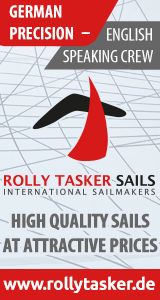@isabellburnham3
Profile
Registered: 6 months, 2 weeks ago
How Medical Practices Training Enhances Employees Efficiency and Productivity
Medical practices are under rising pressure to deliver quality care while optimizing inside operations. Probably the most efficient ways to satisfy this challenge is by investing in complete training programs for medical staff. Training doesn't just train new skills—it builds confidence, improves workflow, and fosters a culture of continuous improvement. Let’s discover how medical practices training enhances staff effectivity and total productivity.
Boosts Workflow Efficiency
Medical practices involve a wide range of responsibilities, from patient intake and scheduling to billing and clinical support. When workers members obtain constant training, they understand the systems and procedures they should follow. This reduces confusion and errors, leading to smoother workflows. Whether or not it’s learning to use a new Electronic Health Records (EHR) system or mastering entrance-desk protocols, trained workers can complete tasks faster and more accurately.
Standardized training additionally ensures that every team member is on the same page. When everybody knows their role and the way it fits into the bigger image, tasks are completed with minimal overlap or delay. In consequence, the apply runs like a well-oiled machine.
Reduces Errors and Enhances Compliance
Mistakes in a medical setting could be costly—not just financially but additionally in terms of patient safety and legal risks. Common training sessions help staff keep updated on industry laws, HIPAA compliance, billing codes, and clinical protocols. This knowledge reduces the likelihood of errors, from data entry mistakes to mishandling of patient information.
By ensuring compliance with laws, training also minimizes the risk of penalties and audits. Workers who're assured in their understanding of the foundations can perform their duties without second-guessing, which finally saves time and prevents costly setbacks.
Increases Job Satisfaction and Retention
When employees feel competent and empowered, they're more likely to enjoy their work and keep with the organization. Training provides opportunities for professional development, showing employees that the observe is invested in their growth. This boost in morale can translate into higher productivity levels, as engaged employees tend to be more motivated and efficient.
Additionalmore, reducing the learning curve for new hires helps them become productive members of the team much faster. With proper onboarding and ongoing help, employees are less likely to feel overwhelmed or burnt out.
Improves Patient Experience
Efficient, well-trained workers don’t just benefit internal operations—additionally they enhance the patient experience. From a warm greeting on the entrance desk to accurate scheduling and prompt billing, patients notice when a apply runs smoothly. Training helps be certain that each patient interplay is handled with professionalism and care, growing patient satisfaction and loyalty.
Happy patients are more likely to return for observe-ups and recommend the practice to others, contributing to the growth and success of the medical facility.
Encourages Team Collaboration
Training fosters a collaborative environment by aligning staff with the observe’s mission, values, and goals. Team-based mostly training periods, workshops, and simulations can encourage communication and problem-fixing, strengthening the bonds between departments. A united team is more likely to collaborate successfully, share knowledge, and assist one another in each day tasks.
This cohesion plays a critical role in maintaining high performance, particularly throughout busy or disturbing periods. When everyone understands find out how to work together efficiently, productivity naturally increases.
Future-Proofs the Follow
Healthcare is constantly evolving, with new applied sciences, regulations, and patient expectations. Training helps medical practices stay ahead by getting ready employees for upcoming changes. Whether it’s telehealth tools, updated software, or new treatment guidelines, continuous education ensures that the team is ready to adapt and excel.
By investing in training at present, medical practices position themselves for long-term success in an ever-changing industry.
Conclusion
Training isn't any longer a luxury for medical practices—it’s a necessity. By enhancing staff knowledge, improving workflow, and boosting morale, training plays a key position in increasing each effectivity and productivity. Practices that prioritize staff development will not only deliver better patient care but also enjoy smoother operations, stronger team dynamics, and a more sustainable future.
If you cherished this article so you would like to get more info relating to Teambuilding nicely visit our web page.
Website: https://fpmc.ch/teambuilding-arztpraxis/
Forums
Topics Started: 0
Replies Created: 0
Forum Role: Participant

